Can Dogs Eat Cooked Onions? The Risks of Onions for Dogs and What You Need to Know
- 13 Mar 2025 11:25
As dog owners, we all want to keep our pets safe and healthy, and part of that is being mindful of what foods we give them. One common ingredient that is often used in cooking is onions. While onions may be a staple in many dishes, they can pose serious risks to your dog’s health, even when cooked. In this article, we’ll explore whether dogs can eat cooked onions, the dangers associated with onions, and what to do if your dog accidentally consumes them.
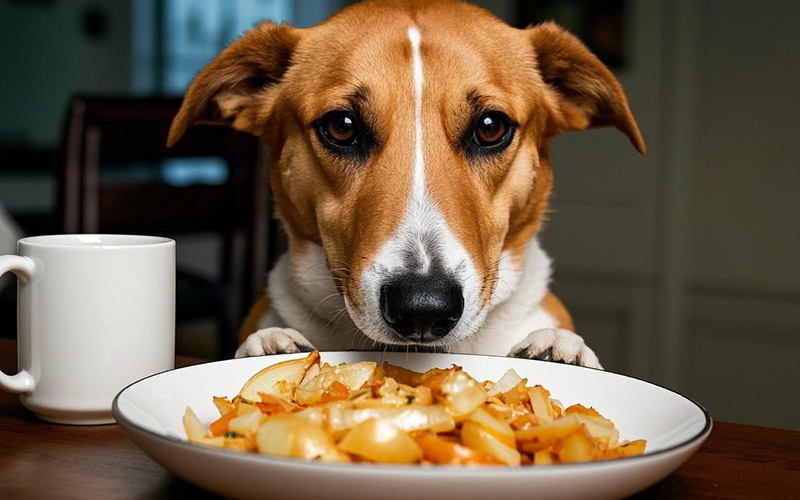
Why Onions Are Dangerous for Dogs 🐾
Onions, whether raw or cooked, contain compounds called thiosulfates, which can be toxic to dogs. Thiosulfates are present in all forms of onions, including red, white, yellow, and even green onions. While humans can easily process these compounds, dogs lack the necessary enzymes to safely break them down, which can lead to a dangerous condition called hemolytic anemia.
Hemolytic anemia occurs when the compounds in onions cause the destruction of red blood cells, leading to a reduced ability to carry oxygen throughout the body. This condition can cause a range of symptoms, from mild to severe, depending on how much onion your dog has consumed.
Can Dogs Eat Cooked Onions? 🍲
While cooking onions may reduce some of their potency, cooked onions are still toxic to dogs and should be avoided at all costs. Cooking does not eliminate the harmful thiosulfates, so even if your dog consumes cooked onions, it can still lead to the same dangerous effects.
The form of onion (raw, cooked, powdered, or dehydrated) doesn’t matter — the toxic compounds remain present, and the risk to your dog’s health is the same. In fact, onion powder, which is often used in seasoning, can be even more concentrated and harmful than fresh or cooked onions.
Symptoms of Onion Poisoning in Dogs ⚠️
If your dog eats cooked onions, they may start showing symptoms of onion toxicity. The severity of symptoms will depend on how much onion your dog consumed and their size. Some common signs of onion poisoning include:
Vomiting 💥
Diarrhea 💩
Lethargy 😴
Weakness or lack of coordination 🐕
Pale or yellowish gums 🟡
Rapid breathing or heart rate 💓
Blood in urine or dark-colored urine 🩸
Abdominal pain or discomfort 🤕
These symptoms can appear within hours of ingestion but might take a few days to manifest in some cases. If your dog shows any of these signs after consuming onions, it's important to contact your vet immediately for treatment.
How Much Onion Is Toxic to Dogs? ⚖️
The toxic dose of onion can vary based on your dog's size, breed, and individual sensitivity. However, it's generally considered that 5 grams of onion per pound of body weight can be toxic to dogs. For example, a 10-pound dog could experience poisoning from just 50 grams of onion. This means that even a small amount of onion can cause significant harm to smaller dogs.
Given that onion powder is highly concentrated, just a small sprinkle of seasoning can cause toxicity. So, it's crucial to be cautious about what your dog eats, even in small amounts.
What Should You Do If Your Dog Eats Cooked Onions? 🆘
If your dog has consumed cooked onions or any other form of onion, here’s what you should do:
Assess the Situation: Try to figure out how much onion your dog ate and what form it was in (raw, cooked, powdered, etc.). This will help your vet determine the severity of the situation.
Contact Your Veterinarian: Call your vet immediately for advice, even if you're unsure whether your dog has eaten a dangerous amount. Your vet will likely ask about your dog’s size, the amount of onion consumed, and any symptoms you're observing.
Induce Vomiting (If Advised): If your vet recommends it, you may need to induce vomiting to prevent further absorption of the toxins. This is most effective if done within the first few hours after ingestion.
Provide Medical Care: In severe cases of onion toxicity, your vet may administer intravenous fluids, medications to manage symptoms, or even perform a blood transfusion if the anemia is severe.
Preventing Onion Poisoning in Dogs 🛑
The best way to prevent your dog from consuming onions is to keep onions and foods containing onions out of their reach. Here are some tips to avoid accidental ingestion:
Store onions safely in cabinets or containers that are out of reach of your dog.
Be cautious when cooking: If you're preparing meals with onions, make sure your dog doesn’t have access to the kitchen, and be mindful of any scraps left behind.
Check ingredients: Many processed or packaged foods (like soups, sauces, or seasonings) may contain onion powder or dehydrated onion. Always check labels before feeding your dog any packaged food.
Educate family and friends: Ensure everyone in the household knows that onions are toxic to dogs and that they should not be shared with your pet.
Safe Alternatives to Onions for Dogs 🥕🍎
If you’re looking for safe and healthy foods to share with your dog, there are plenty of alternatives that provide essential nutrients without the risks associated with onions. Some dog-friendly fruits and vegetables include:
Carrots 🥕
Sweet potatoes 🍠
Apples (without seeds) 🍏
Blueberries 🫐
Pumpkin 🎃 (plain and cooked)
Cucumbers 🥒
These treats are healthy and safe for dogs, and they offer a range of benefits for your pet's diet.
How PettureX Can Help You Stay Informed 🐾💻
If you're ever uncertain about whether a food is safe for your dog or if you're concerned about potential poisoning, consider using PettureX. PettureX is an AI-powered pet health software that provides 24-hour online consultations and advanced image recognition to help identify pet health concerns. If your dog eats something harmful, PettureX can help you determine whether it’s time to seek professional care or if the situation is manageable at home.
Conclusion: Keep Cooked Onions Away from Your Dog 🚫
To sum it up, cooked onions are toxic to dogs and should never be given to them, no matter how small the amount. The risks associated with onion consumption are significant, and even small amounts can lead to serious health issues. Always be cautious with what you feed your dog, and ensure that onions and any food containing them are kept out of reach. If you suspect your dog has eaten onions, contact your vet immediately for advice and treatment.
For any pet-related concerns, PettureX is a great tool to get reliable, timely advice on your dog’s health and well-being.
Related
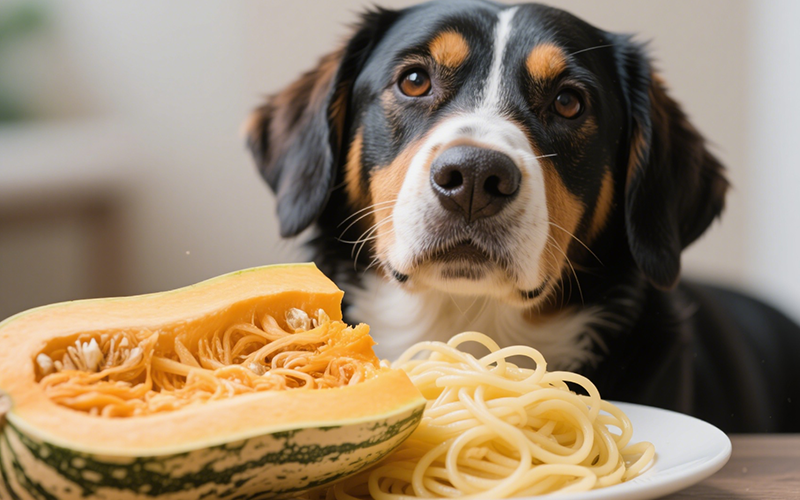
Squash Smarts: Can Dogs Eat Spaghetti Squash? A Vet-Approved Guide
- 26 Apr 2025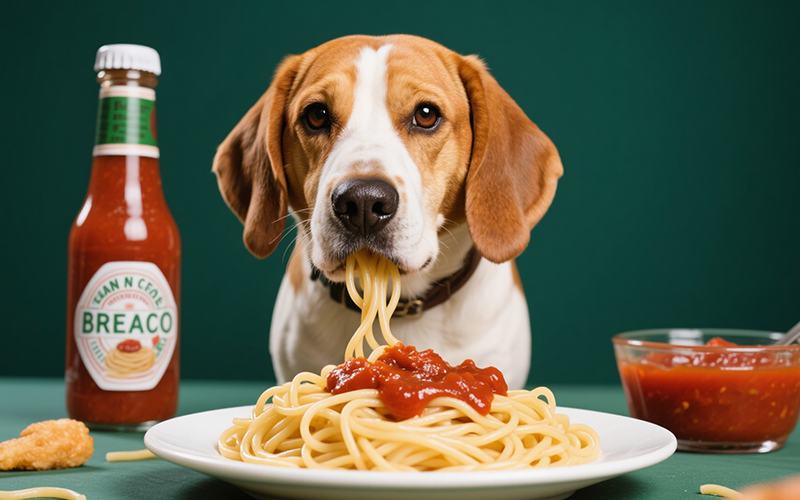
Sauce Inquiry: Can Dogs Eat Spaghetti Sauce Safely? Why Vets Advise Against It
- 26 Apr 2025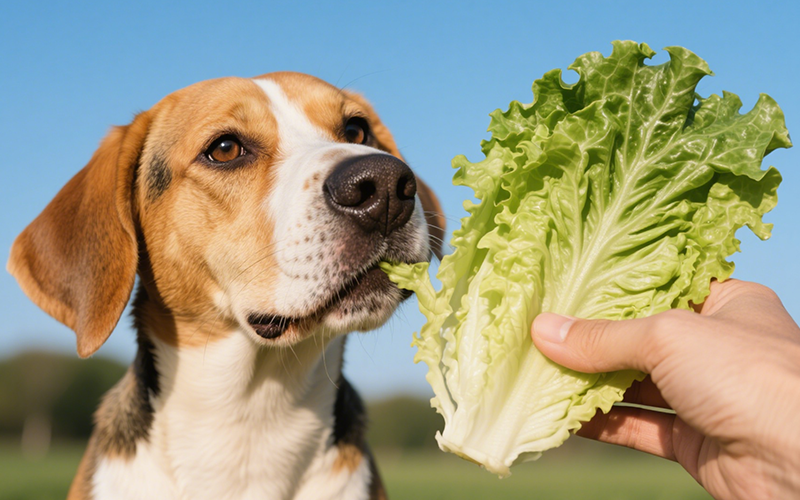
Crunchy Greens for Canines: Can Dogs Eat Romaine Lettuce Safely?
- 25 Apr 2025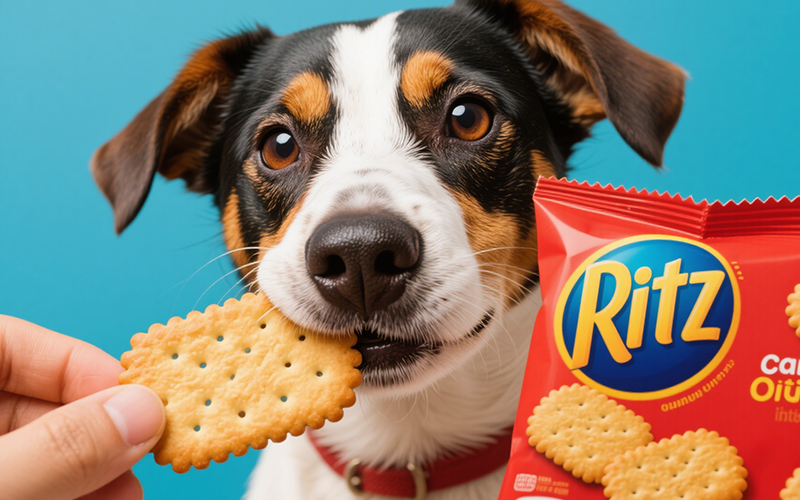
Ritz Crackers for Dogs? Why Vets Say No to This Common Snack
- 25 Apr 2025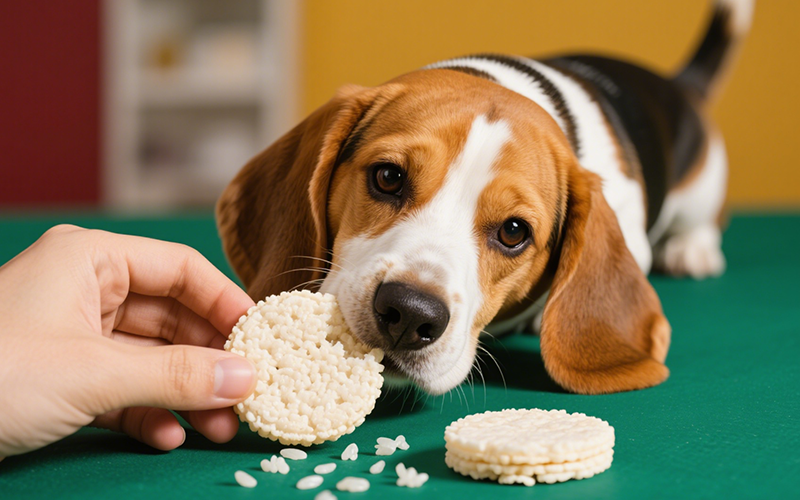
Rice Cakes for Rover? A Crunchy Question: Can Dogs Eat Rice Cakes Safely?
- 24 Apr 2025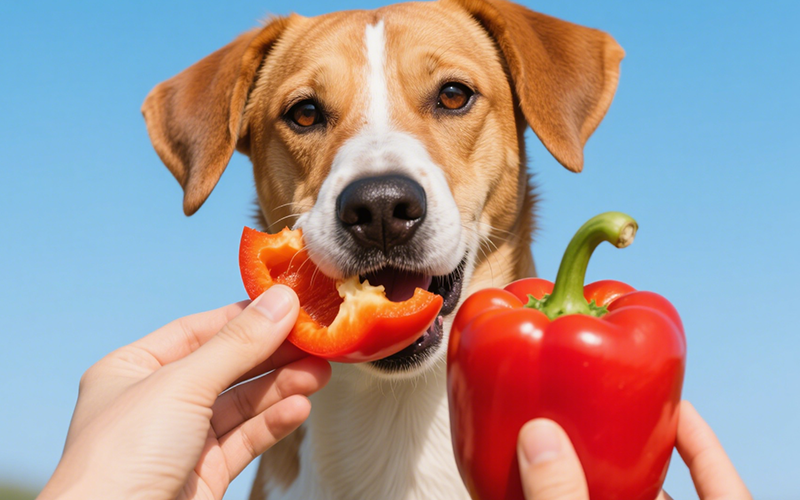
Crunchy & Colorful: Can Dogs Eat Red Bell Peppers Safely? A Vet-Approved Guide
- 24 Apr 2025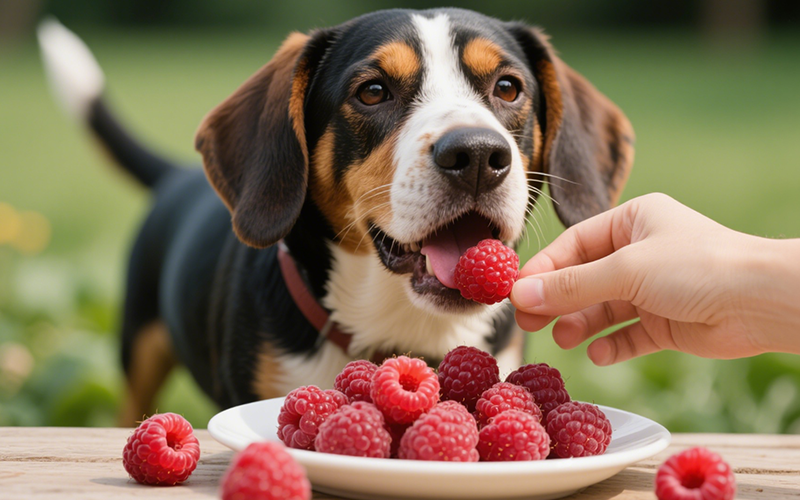
Raspberries for Rover? A Vet's Guide to This Berry Good Treat for Dogs
- 23 Apr 2025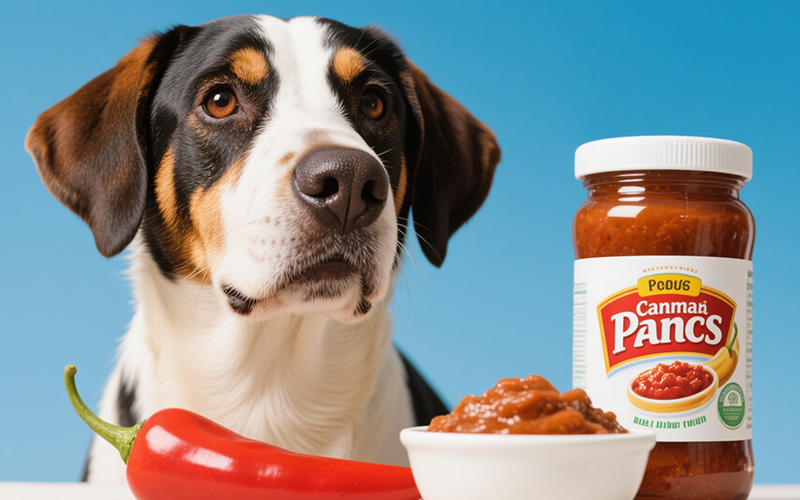
Ranch Dressing Dilemma: Can Dogs Safely Indulge? A Deep Dive into Why It's a Bad Idea
- 23 Apr 2025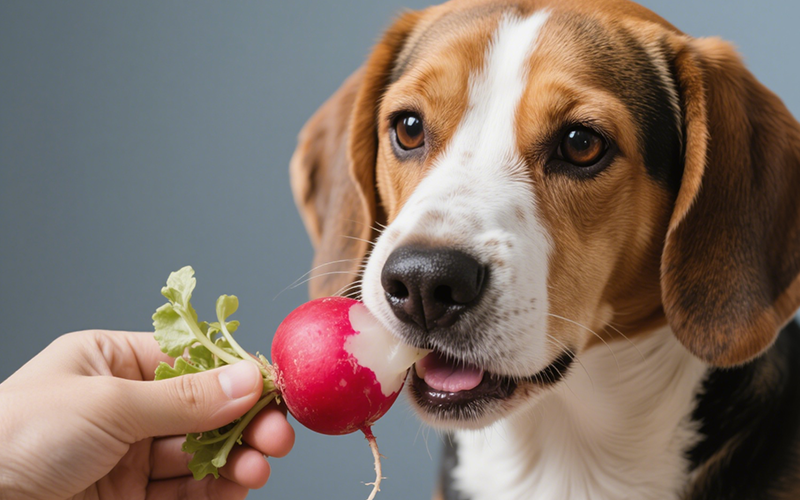
Radish Bites for Your Buddy? A Vet-Reviewed Guide on Whether Dogs Can Eat Radishes
- 22 Apr 2025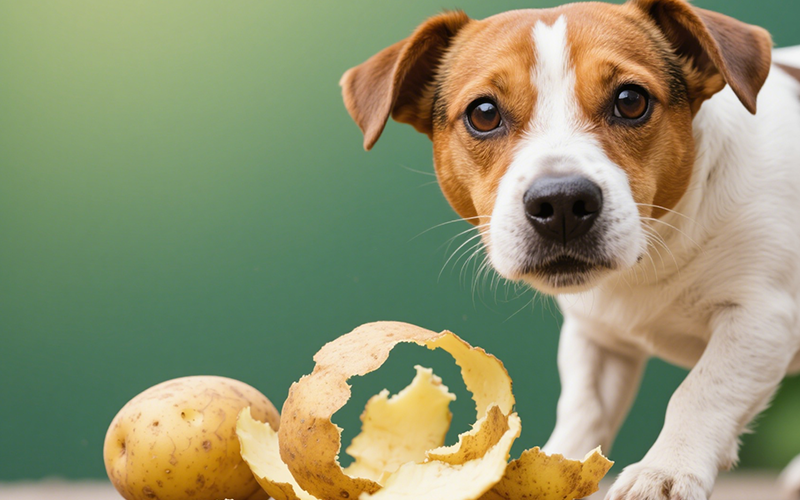
Potato Peels for Pooches? Unpeeling the Risks and Facts for Dog Owners
- 22 Apr 2025
